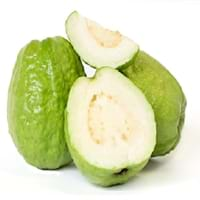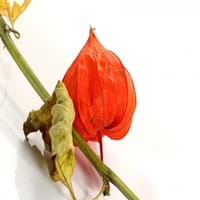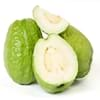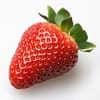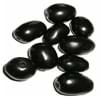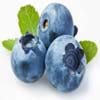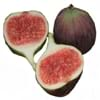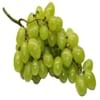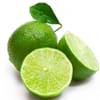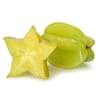Health Benefits
Cancer prevention, Diarrhea treatment, Prevents constipation, Scurvy treatment, Treatment of dysentary
Anti-oxidant properties, Anti-inflammatory properties, Cancer prevention, Maintains healthy cholesterol level, Reduces blood circulation problems, Treatment of cough, fever & sore throat, Treatment of Hypertension
General Benefits
Controls blood pressure, Cures cough, Improves eye vision, Maintains healthy cholesterol level, Treatment of common cold
Treatment of asthma, Treatment of cataract, Treatment of hepatitis, Treatment of macular degeneration, Treatment of neurodegenerative diseases
Skin Benefits
Anti-aging benefits, Brightens and lightens complexion, Hydrates skin, Treatment of skin diseases
Treatment of Rheumatism & Dermatitis, Treatment of Skin Inflammation
Hair Benefits
Prevents hair loss
Unknown
Allergy Symptoms
Breathing difficulty, Coughing, Runny nose, Sneezing, Swelling of mouth, tongue or lips, Wheezing
NA
Side Effects
Hair thinning, Nail thinning, Skin problems, Tooth decay, Weakness, Possibly unsafe during pregnancy
Hypertension, Ventricular Tachycardia
Best Time to Eat
As a snack in the late afternoon, Don't consume at night and before bed, Eat the fresh ones, avoid mixing with any other foods, don't eat after meal., Morning time (before lunch)
As a snack in the late afternoon, Eat the fresh ones, avoid mixing with any other foods, don't eat after meal., Morning time (before lunch), Strictly avoid empty stomach
Vitamin B5 (Pantothenic Acid)
Not Available
Vitamin B6 (Pyridoxin)
Not Available
Vitamin B9 (Folic acid)
Not Available
Vitamin C (Ascorbic Acid)
Vitamin K (Phyllochinone)
Not Available
Lutein+Zeaxanthin
Not Available
Water Content
Not Available
Calories in Fresh Fruit with Peel
Calories in Fresh Fruit without Peel
Not Available
Not Available
Calories in Frozen Form
Not Available
Not Available
Calories in Dried Form
Not Available
Calories in Canned Form
Not Available
Type
Tree fruit, Tropical
Fruit vegetable
Season
All seasons
Spring, Summer
Varieties
Lucknow 49, Allahabad Safeda, Chittidar, Harijha, Apple guava, Hafshi, Arka Mridula and Allahabad Surkha
Physalis franchetii, Physalis pruinosa, Physalis peruviana, Physalis heterophylla and Physalis philadelphica
Color
Green, Pink, Yellow
Bright Yellow, Orange
Inside Color
White
Orange
Origin
Central America, Mexico, South America
Chile, Peru
Soil Type
Loam, Rocky, Sandy
NA
Climatic Conditions
Sunny
NA
Facts about
- The black pigment in Guava leaves is used for textile applications.
- Guava leaves are used to make tea.
- Oils extracted from guava seeds are used in various cosmetics.
- Guava wood is used for decorative purposes.
NA
Other Countries
China, Indonesia, Mexico, Nigeria, Pakistan, Philippines, Thailand
NA
Top Importer
Canada
Netherlands
Top Exporter
India
Colombia
Botanical Name
Psidium guajava
Physalis Peruviana
Synonym
Not Available
Alkekengi, Herschellia & Pentaphitrum
Subkingdom
Tracheobionta
Tracheobionta
Division
Magnoliophyta
Magnoliophyta
Class
Magnoliopsida
Magnoliopsida
Subclass
Rosidae
Asteridae
Family
Myrtaceae
Solanaceae
Species
Psidium guajava
Physalis
Generic Group
Myrtle
Not Available
Compare Guava and Physalis
It is important compare Guava and Physalis as both the fruits have a different nutritional value. Their comparison can be done on the basis of their vitamin and mineral content, calories, benefits as well as characteristics, making it easier for us to choose the best fruit for our diet. Their general health benefits are as follows:
Guava Benefits: controls blood pressure, cures cough, improves eye vision, maintains healthy cholesterol level and treatment of common cold.
Physalis Benefits: treatment of asthma, treatment of cataract, treatment of hepatitis, treatment of macular degeneration and treatment of neurodegenerative diseases.
Fruits are also used as a remedy for various hair problems. The hair benefits of Guava are: prevents hair loss and hair benefits of Physalis are: unknown. Some fruits are known to cause allergic reactions. The allergy symptoms of first fruit are: breathing difficulty, coughing, runny nose, sneezing, swelling of mouth tongue or lips and wheezing and the symptoms of second fruit are: na. Get sorted Guava vs Physalis comparison with the help of fruit comparison tool by fruitvs.com.
